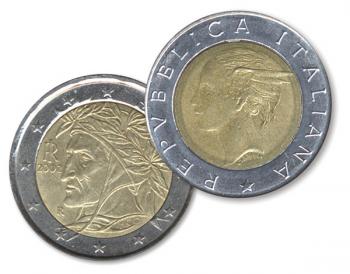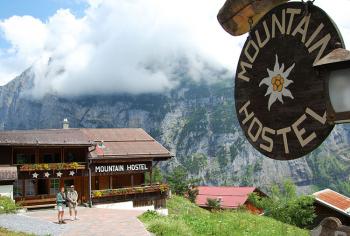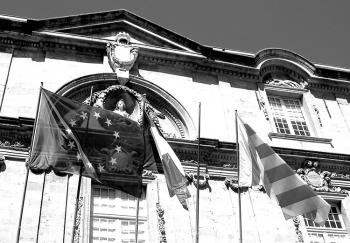This article appears in our Print Edition, November 2009 -- Page 63
• Gelato in hand, you’re strolling down a street in Italy when suddenly an attractive woman starts arguing with a street vendor. A crowd gathers as he accuses her of shoplifting. To prove her innocence, she starts to strip. Once she’s down to her underwear, the vendor apologizes, the woman leaves and the onlookers disappear… and so have their wallets, thanks to a team of pickpockets working the show.
This is just one of the new, inventive ways that European...
CONTINUE READING »
This article appears in our Print Edition, October 2009 -- Page 67
On my last trip to Europe, I didn’t take my usual $200 cash reserve. With just a few bucks in my wallet, I landed in Madrid, relying entirely on two ATM cards and no cash safety net. It turned out okay.
At the airport, I withdrew some euros from an ATM and tucked the bills into my money belt. After decades of traveling to Europe, I have found that the cheapest, safest way to go is to pay with cash for most items and withdraw money as I zip from one place to the next. The reason...
CONTINUE READING »
This article appears in our Print Edition, September 2009 -- Page 58
My mantra being “pack light,” I used to be against packing electronics of any kind. But now I bring my laptop, iPod, digital camera and mobile phone to Europe. With hotels retiring their fax machines in favor of e-mail and with mobile phones getting cheaper and easier to buy and Wi-Fi hotspots popping up everywhere, it’s never been simpler to get connected.
There are plenty of Internet cafés in Europe. Large European chains such as easyInternetcafe.com offer inexpensive access in big...
CONTINUE READING »
This article appears in our Print Edition, August 2009 -- Page 67
If you want to save money while traveling, consider hosteling. Several thousand hostels provide beds throughout Europe — in cities, towns and the countryside — for $20 to $40 per night.
For this rock-bottom price, you get “no frills” accommodations in clean, stark dormitories. The good news for couples and families is that many hostels have a few doubles and some family rooms (book ahead for these). It’s a great way to enjoy some privacy while saving...
CONTINUE READING »
This article appears in our Print Edition, July 2009 -- Page 74
Given the economy, the number-one question I’ve gotten lately from people is whether to go to Europe or not. It’s true that many people will put off their trips for another time, but millions of globetrotters — who see exploring our world as a way of life — will find a way to keep on traveling.
Let’s be honest. Europe is expensive. Prices are high for locals — and for Americans. Yet, regardless of the soaring cost of living, Europeans remain experts...
CONTINUE READING »
This article appears in our Print Edition, May 2009 -- Page 73
While updating my guidebooks for 2009, I found plenty of changes in Britain and Ireland.
• Fortunately, one of my favorite offbeat sights in London — the Bramah Museum of Tea & Coffee (www.teaandcoffeemuseum.co.uk) — will reopen later this year. It had closed following the death of its founder, Edward Bramah. He believed that the tea bag, invented in the 1950s to let Brits brew tea during a TV commercial, spelled the death of a good “cuppa.”...
CONTINUE READING »
This article appears in our Print Edition, April 2009 -- Page 71
Every year when I update my guidebook series, I find out what’s new in Europe. Here’s a review of what Americans can expect the next time they cross the Atlantic.
• In 2009, it’s not the “old Europe” anymore as countries continue to open up their borders. Several Eastern European countries, including Poland, Hungary, the Czech Republic, Slovakia, Slovenia and the Baltic States, have recently done away with border controls for travel within Europe. This means you can now go from...
CONTINUE READING »
This article appears in our Print Edition, February 2009 -- Page 75
One of the things that charms me about traveling through Europe is its ethnic variety. Hop on a train and two hours later you step into a different culture, different language and different heritage.
As Europe united, I feared its ethnic diversity would be threatened, but I find just the opposite is happening. In Europe there are three loyalties: to your region, to your nation and to Europe.
Ask a person from Munich where he’s from and he’ll say, “I’m...
CONTINUE READING »






